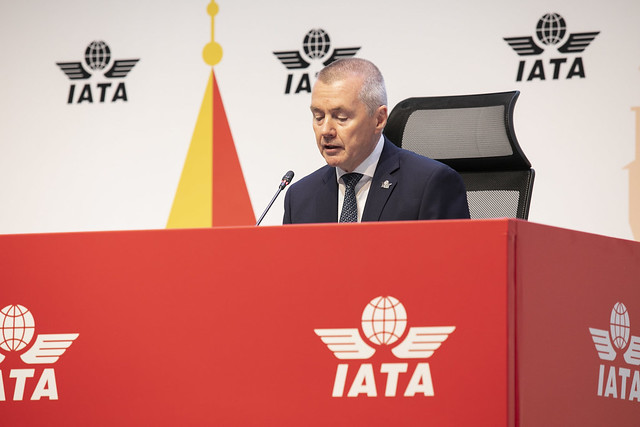The aviation industry plays a crucial role in connecting people across the globe, facilitating trade, and driving economic growth. However, in recent times, airlines have been facing significant challenges and disruptions due to supply chain issues. This has led to frustration among industry stakeholders and raised concerns about the future of air travel. In this article, we will explore the impact of supply chain issues on airlines and the efforts being made to address these challenges.
Table of Contents
- Introduction
- The Frustration of Airlines
- Supply Chain Issues in India
- Go First: A Case of Compelled Insolvency
- The Effect on Airfares
- Addressing Supply Chain Challenges
- Conclusion
- FAQs
1. Introduction
The International Air Transport Association (IATA) serves as the global trade association for the airline industry, representing over 290 airlines worldwide. At its annual general meeting, Willie Walsh, the Director General of IATA, expressed deep concern over the supply chain issues plaguing airlines and the subsequent frustrations faced by the industry.
2. The Frustration of Airlines
Airlines globally have found themselves “beyond frustrated” due to the challenges posed by disruptions in the supply chain. These issues have resulted in delays, grounded aircraft, and increased costs, significantly impacting the efficiency and profitability of airlines.
3. Supply Chain Issues in India
The impact of supply chain issues is particularly severe in India, where airlines have faced significant setbacks. Nearly 100 aircraft, or approximately one in seven aircraft in India, have been grounded due to delays in the procurement of spares and engines. This situation has created a critical operational hurdle for Indian airlines, forcing them to operate with reduced capacity.
4. Go First: A Case of Compelled Insolvency
One of the most prominent examples of the adverse effects of supply chain disruptions is the case of Go First, an Indian airline. The prolonged delays in the procurement of essential components and the grounding of aircraft have pushed Go First to seek insolvency. This unfortunate event highlights the devastating consequences of supply chain issues on airlines’ financial stability and operations.
5. The Effect on Airfares
As a result of the capacity reduction caused by grounded aircraft, the supply-demand dynamics in the aviation industry have been disrupted. The reduced capacity has led to a surge in airfares, impacting passengers who now face higher costs for air travel. This situation further adds to the frustration experienced by both airlines and travelers alike.
6. Addressing Supply Chain Challenges
Recognizing the gravity of the situation, industry stakeholders are actively working towards resolving the supply chain challenges faced by airlines. Collaboration between airlines, manufacturers, and regulatory authorities is crucial to finding sustainable solutions. Efforts are underway to streamline the procurement process, enhance inventory management, and improve communication channels to mitigate the impact of disruptions.

7. Conclusion
The supply chain issues faced by airlines have reached a critical point, causing frustration and financial strain within the industry. The grounding of aircraft, delays in procurement, and subsequent increase in airfares have all contributed to a challenging operating environment. However, with concerted efforts and collaboration, the aviation industry can overcome these hurdles and restore the smooth functioning of the supply chain.
